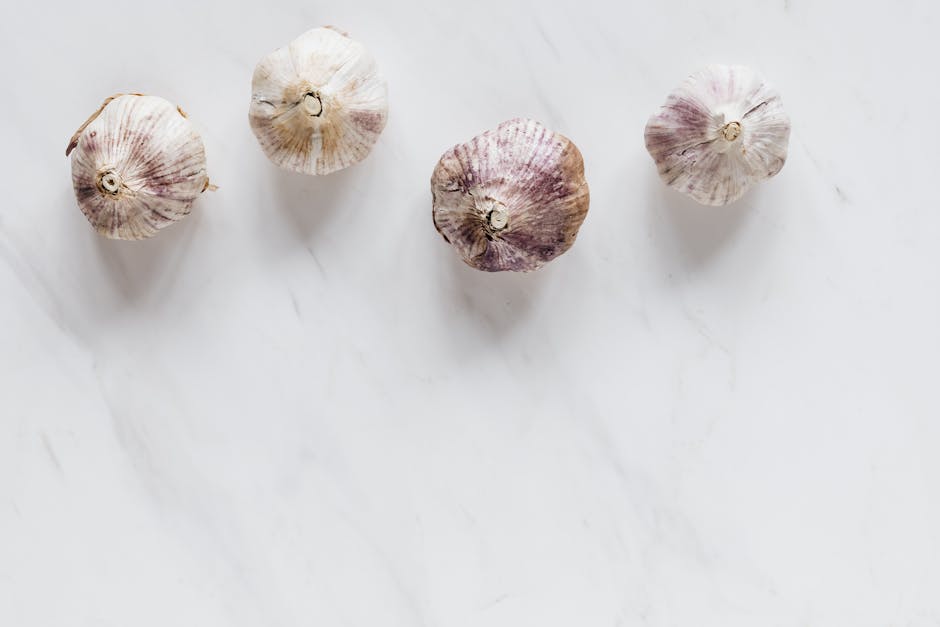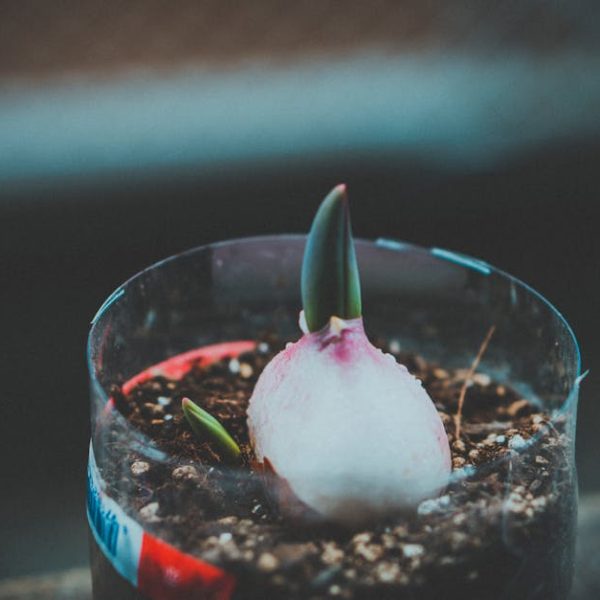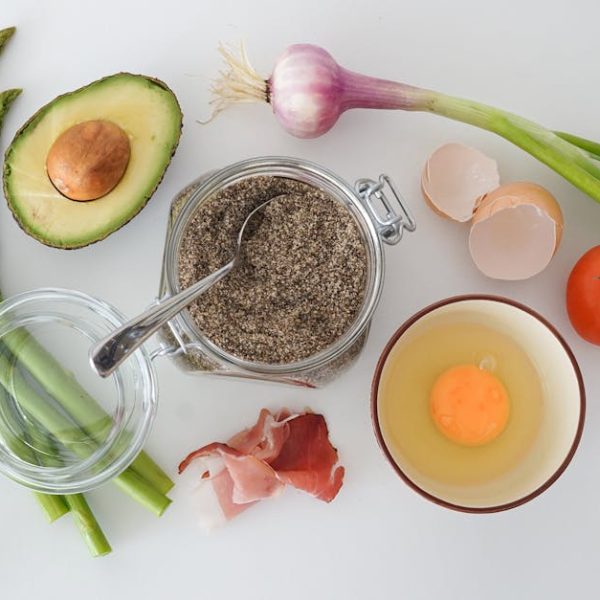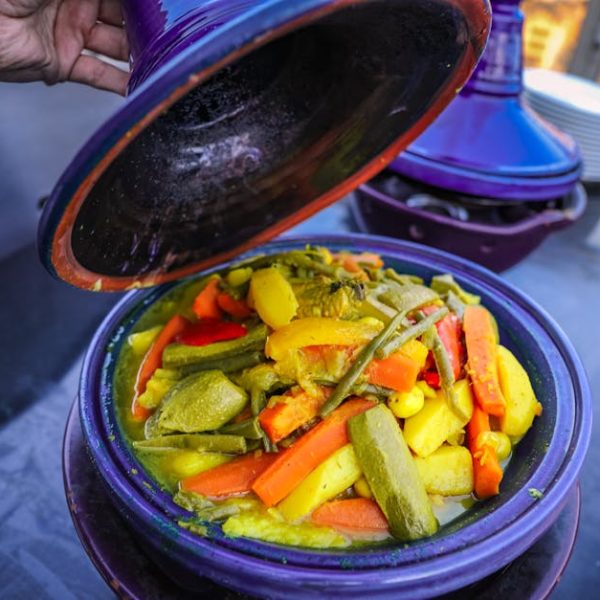Garlic is a kitchen staple used to add a punch of flavor and aroma to many dishes. But, like most ingredients, it has a limited shelf life. However, with a few smart tricks, you can prevent your garlic from spoiling and ensure it stays fresh for longer. This article will provide five genius tips to prevent garlic from wasting away, helping you make the most out of this flavorful herb.
Understanding Garlic’s Shelf Life
The shelf life of garlic can vary based on multiple factors, including the variety of garlic, its form (whole, minced, or powdered), and the conditions in which it is stored. Whole garlic bulbs, for instance, can last up to six months if stored correctly. In contrast, a minced garlic container may begin to spoil after three months. Therefore, understanding your garlic’s shelf life is a key first step to preventing spoilage.
To extend the shelf life of your garlic:
- Store it in a cool, dark location such as a pantry or cellar.
- Keep it dry to prevent the growth of mold.
- Never refrigerate unpeeled garlic, as this can cause it to sprout.
Storing Garlic the Right Way
Proper storage can significantly impact the life of your garlic. For unpeeled cloves, a cool, dark location is ideal. Peeled cloves or minced garlic, however, should be refrigerated to keep them from spoiling.
When storing garlic:
- Keep whole bulbs in a mesh bag for air circulation, which can deter mold growth.
- Refrigerate peeled or minced garlic in a tightly sealed container.
- Store garlic away from other vegetables, as it can cause them to spoil faster due to its high moisture content.
Different storage methods offer different advantages and potential pitfalls. For instance, while refrigeration can extend the life of some forms of garlic, it can also cause it to lose some of its robust flavor.
Freezing Garlic for Long Term Storage
Freezing is a fantastic approach to extend garlic’s life without significantly compromising its flavor. You can freeze whole cloves, minced garlic, or even a mixture of garlic and herbs for future use.
To freeze your garlic effectively:
- Begin with fresh garlic free from any signs of mold or decay.
- If you’re freezing whole cloves, ensure they are peeled beforehand.
- Minced garlic or garlic paste can be portioned into ice cube trays for easy usage.
- Always use an airtight container or bag to freeze your garlic and avoid freezer burn.
Remember, freezing is not a cure-all; it only slows down spoilage. It’s crucial to use frozen garlic within a reasonable time frame to ensure optimal flavor and quality. Typically, frozen garlic can be used for up to a year.
Now that you know how to prolong the shelf life of garlic, you can utilize this potent ingredient to its fullest, adding rich flavor to your dishes without worry. Remember, the key to preventing garlic from spoiling is understanding its shelf life, storing it correctly, considering freezing for long-term storage, preserving it in certain solutions like oil or vinegar, and trying out drying and dehydrating methods.
Preserving Garlic in Oil or Vinegar
Another creative way to make your garlic last longer is preserving it in oil or vinegar. This method not only extends your garlic’s usability but creates fascinating condiments that add distinct flavor to your dishes.
For preserving garlic in oil or vinegar, you’ll need:
- Fresh garlic cloves
- Good quality oil or vinegar (olive oil and white vinegar are great options)
- Sterilized jars with hermetic seals
However, do note that garlic preserved in oil must always be stored in the refrigerator to prevent the growth of bacteria, while garlic in vinegar has a long shelf life in the pantry.
Most importantly, consider the taste you prefer. Garlic-infused oil adds a subtle savory hint to dishes, but it has a shorter shelf life of about four months. On the other hand, garlic preserved in vinegar has a tangy flavor and longer shelf life of up to a year.
Drying and Dehydrating Garlic
Drying or dehydrating garlic is another surefire method to prevent it from spoiling while giving it a more concentrated flavor profile. This method involves removing all the moisture from the garlic, resulting in a dehydrated form that can last for years if stored properly.
To properly dry or dehydrate garlic at home:
- Slice the garlic thinly and evenly for uniform drying.
- Arrange the sliced garlic on a dehydrator tray or oven-safe sheet.
- Set your dehydrator or oven to a low temperature setting (about 140°F) and dry the garlic until it is crisp and moisture-free.
- Store the dried garlic in an air-tight container in a dark location.
Remember, dehydrated garlic must be stored properly to retain the maximum flavor and prevent moisture absorption. Therefore, ensure that your storage containers are air-tight and stored away from sunlight.
By following these tips, you’ll not only keep your garlic from going bad, but you’ll also unlock new potential uses and flavors from this wonderful ingredient. So why wait? Start experimenting with these methods and keep your kitchen stocked with versatile, flavorful, and durable garlic.
Key Takeaway:
- The shelf life of garlic depends on its variety, form, and storage conditions.
- Proper storage is crucial to maximize garlic’s shelf life. Whole garlic should be stored in a cool, dark location away from moisture. Peeled or minced garlic must be refrigerated.
- Freezing is an effective method to extend the shelf life of garlic without significantly affecting its flavor.
- Preserving garlic in oil or vinegar not only extends its usability but also creates flavorful condiments.
- Drying or dehydrating garlic can significantly increase its shelf life and alter its flavor profile.
You can ensure that your kitchen is always stocked with fresh garlic by understanding its shelf life, storing it properly, and preserving it wisely. These simple yet effective methods can decrease waste and improve culinary experiences by enabling versatile uses of garlic and maintaining its optimal flavor.
FAQs
Q: What are the signs that garlic has spoiled?
A: Spoiled garlic may develop brown spots, become soft, or show signs of green sprouts. It may also have an off smell or a moldy appearance.
Q: Can I store garlic in the refrigerator?
A: While unpeeled garlic should not be stored in the refrigerator, peeled or minced garlic should be refrigerated to prevent spoilage.
Q: Can I refreeze thawed garlic?
A: Refreezing thawed garlic is not recommended as it can significantly affect its texture and flavor.
Q: Can preserving garlic in oil lead to botulism?
A: Yes, if not stored correctly. Garlic preserved in oil should always be stored in the refrigerator to prevent the growth of botulism bacteria.
Q: After dehydrating garlic, can I rehydrate it for use?
A: Yes, dehydrated garlic can be rehydrated by soaking in warm water for about 15 minutes, but its texture may not be the same as fresh garlic.
We encourage you to share this article and explore more posts on our website to learn about food preparation, storage, and preservation techniques.






